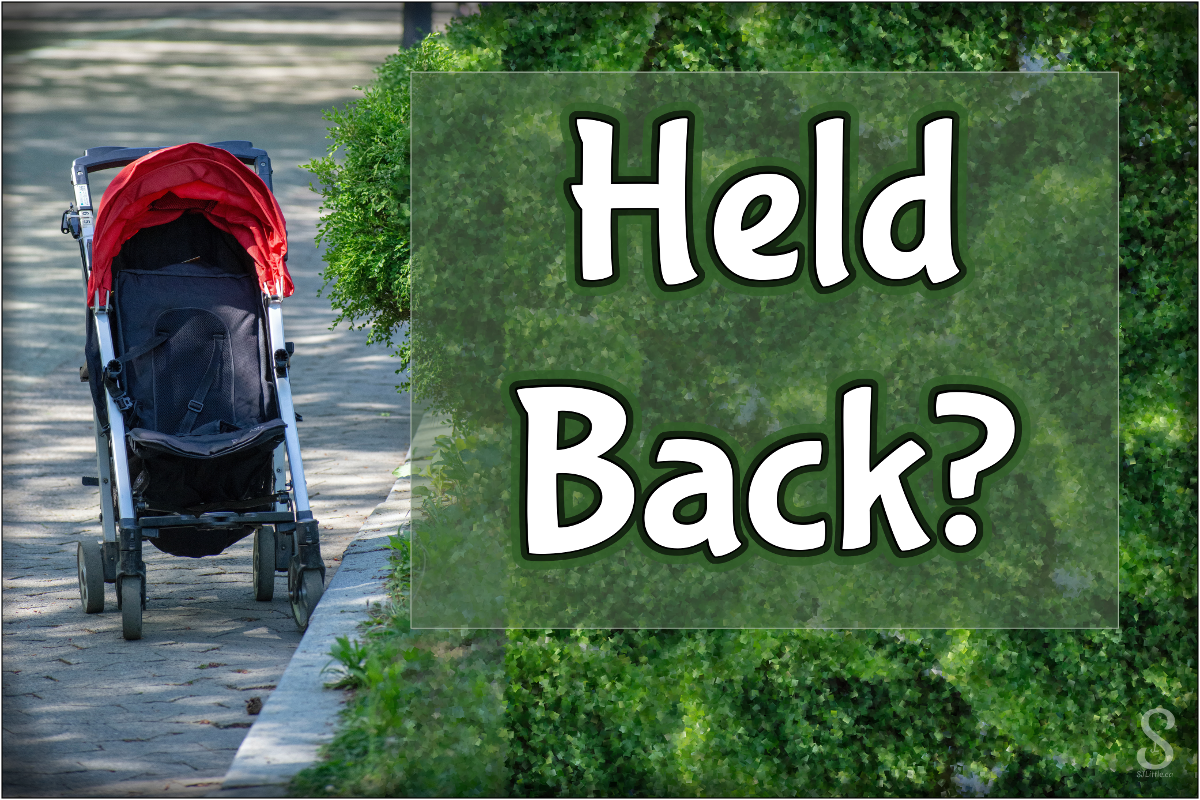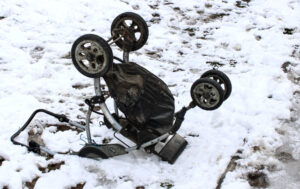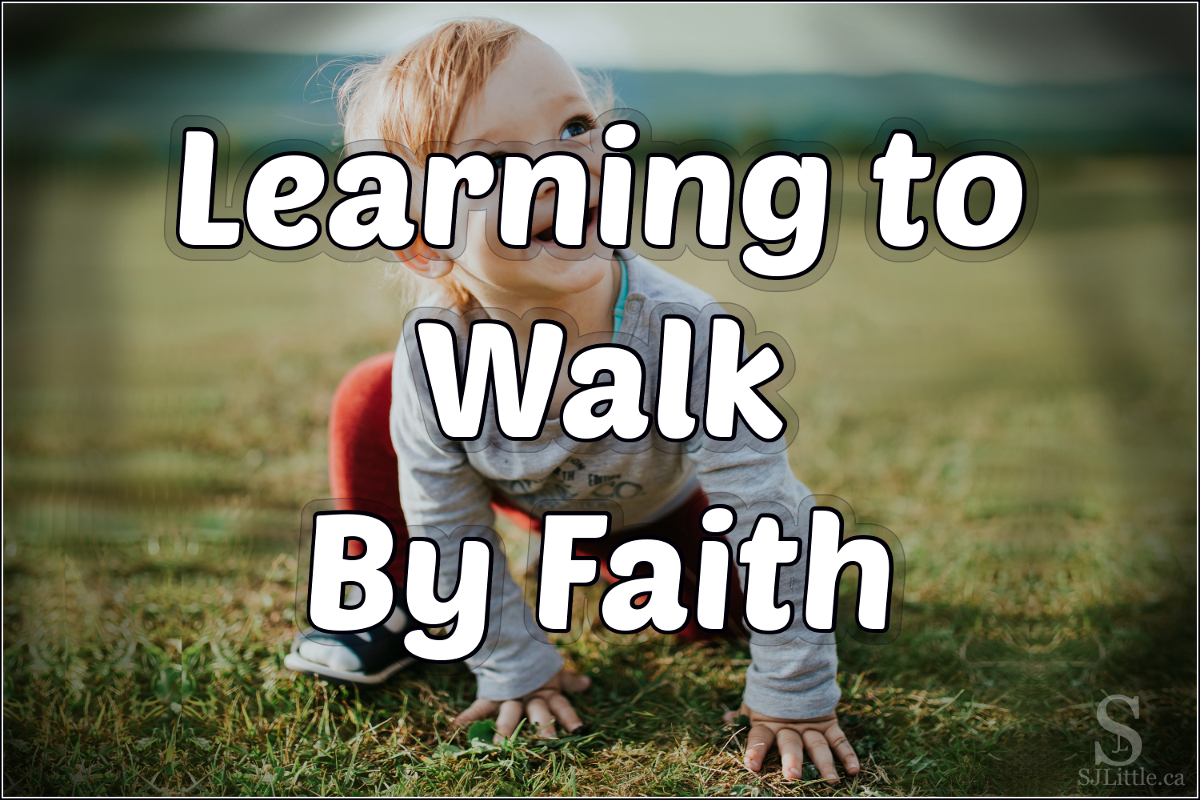
The other day, my husband and I went for a walk with our little one. The skies were clear and it was an exceptionally warm spring day.
As we approached a steep hill, we strapped our little one into her stroller.
With my husband handling the stroller, we began the descent, thankful for the well-paved path.
My husband, being much taller than I am, let the incline carry him faster and faster. I hastened to keep up.
I laughed. “You and your long legs. You can go so much faster than me.”
Slowing so I could keep up, my husband replied, “Our little one could go faster than either of us if I let her.”
I glanced down the rest of the hill. He was right. If allowed to, the stroller, with our little one in it, had the potential to gain tremendous speed. That is, until it reached the first bend in the path and toppled.
I wasn’t worried. I knew my husband and his deep desire for our daughter to have the best. I knew he would protect her from such a traumatic accident.
“I’m glad you don’t let her reach her full potential,” I replied lightly.
How ironic. Typically we want our children to reach their full potential, but here my husband was holding our daughter back and I was glad.
That got me thinking. Sometimes I feel stuck – like I’m chomping at the bit – unable to reach my full potential.
Could it be that God, my Father, is the one holding me back? Could His plans be different than mine?
The Bible says:
“As the heavens are higher than the earth,
so are My ways higher than your ways
and My thoughts than your thoughts.”
(Isaiah 55:9 NIV)
Do I really believe God knows better than me?
Sometimes I feel stifled in my growth and in what I am able to do. If I were a full-time writer, just think how many books I could produce! However, most of my time is spent caring for my family and keeping house. These are very good things, and I typically enjoy them. Yet they hold me back from what could be my full potential in a different set of circumstances.
Don’t get me wrong. There is a time to change things up. A season to put some things aside so I can focus more on what God would have me pursue at that time.
There is also a time to embrace where God has put me now and learn to thrive in it. Like a plant flourishing where it is planted, not pining to be transplanted or let loose.
How do I respond when I feel held back from what I believe to be my full potential? Do I pout and mope? Do I dare to criticize God? Or do I take my frustration straight to God, telling Him how I feel, then trusting that He knows best?
If He wants me to do more, He will give me what I need for it when the time is right. I am thankful God is patient with me every time I forget this.
Indeed, there may be a time when it is good for my daughter to move at tremendous speeds – such as when her daddy teaches her to drive. Such speeds are beyond her one-year-old comprehension. That day in the stroller, to go zooming off down the path would have ended badly. It was beyond her ability to handle that speed in that circumstance. Her daddy understood this so he held her back.
God understands what is beyond my ability to handle right now. His holding me back from what I believe to be my full potential is because He knows best. He knows my true potential.
But, wait. Is this a Biblical principle? I’m glad you asked. Here are some examples of people in the Bible whom, I suspect, felt God was holding them back from their full potential, or at least from the life they felt called to or desired. Let me know in the comments if you agree.
David was a shepherd boy – a nobody. One day a prophet anointed David telling him that he would be the next king. At some point after that, David became a servant of the current king, Saul. Then things turned nasty. King Saul tried to kill David. For years David was running for his life. During that time, do you think David ever felt held back from his full potential – the thing God had called him to? Yet it was more than 10 years between the time God called him and when he finally became king. (1 Samuel 16 – 2 Samuel 5)
The demon-possessed man Jesus healed in Luke 8 also comes to mind. He wanted to follow Jesus.
“The man from whom the demons had gone out begged to go with Him, but Jesus sent him away, saying, ‘Return home and tell how much God has done for you.’ So the man went away and told all over town how much Jesus had done for him.” (Luke 8:38-39 NIV)
Finally, I think of the Apostle Paul. Something was holding him back from what he felt was his full potential. Bible commentators vary in their speculation of what that something was. Whatever it was, it felt like a weakness – a hindrance. Paul wrote about it in 2 Corinthians 12:7b-9:
“I was given a thorn in my flesh… Three times I pleaded with the Lord to take it away from me. But He said to me, ‘My grace is sufficient for you, for My power is made perfect in weakness.’ Therefore I will boast all the more gladly about my weaknesses, so that Christ’s power may rest on me.” (NIV)
Today, in the midst of a culture urging me to push harder and reach bigger, may I rest in the fact that God knows what He is doing. His timing is perfect. May I thrive in this season right now.
As the well-known proverb puts it:
“Trust in the Lord with all your heart,
and do not rely on your own understanding;
in all your ways know Him,
and He will make your paths straight.”
Proverbs 3:5-6 (CSB)






